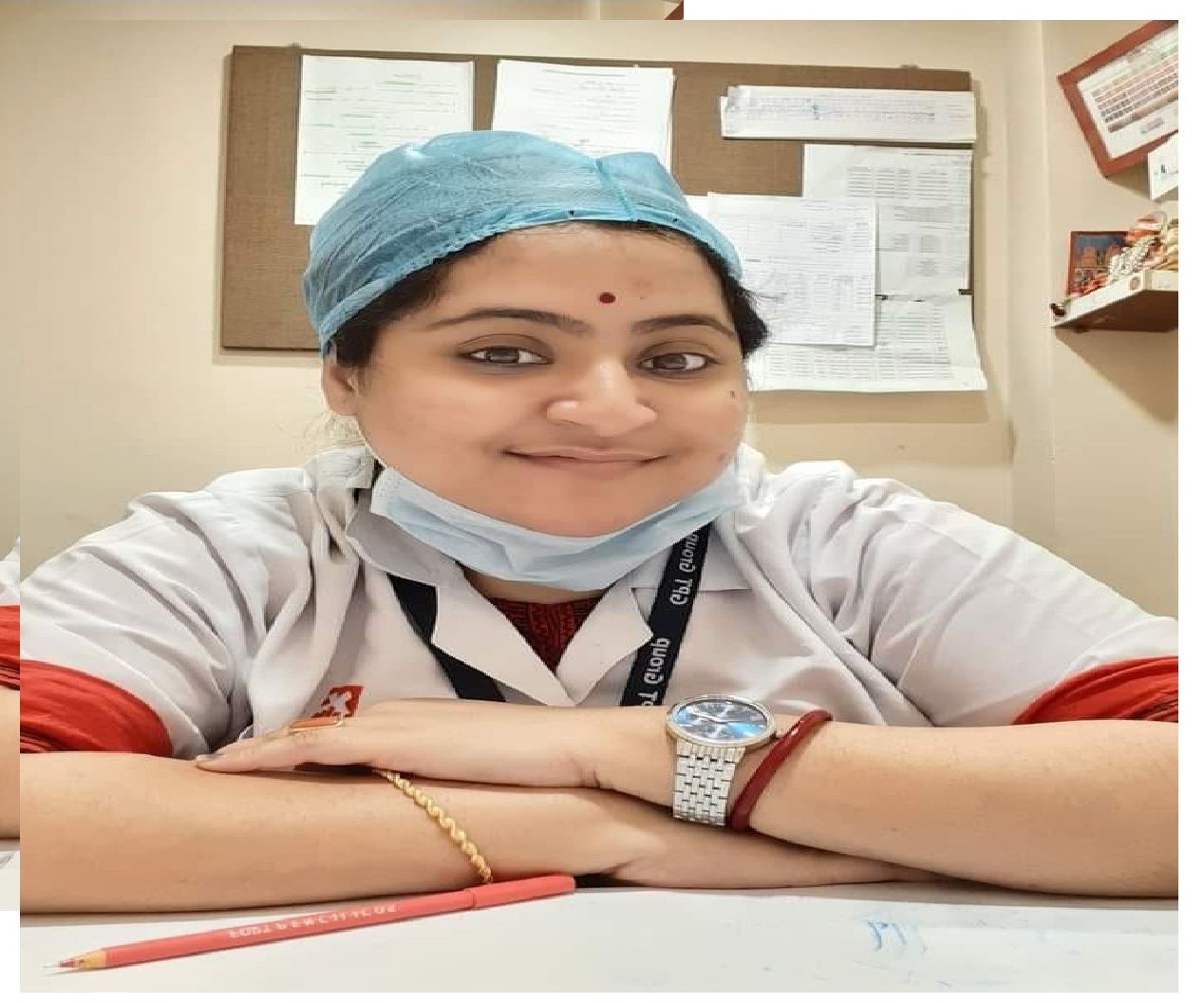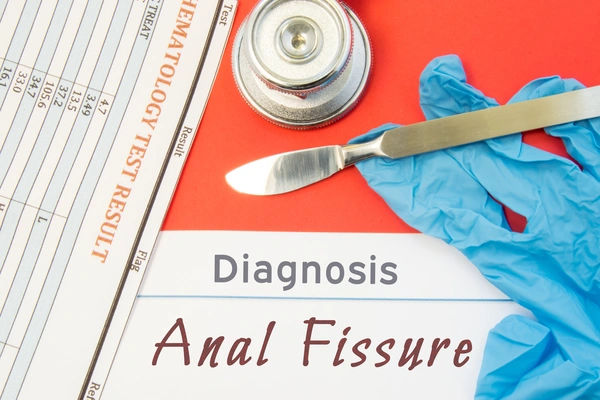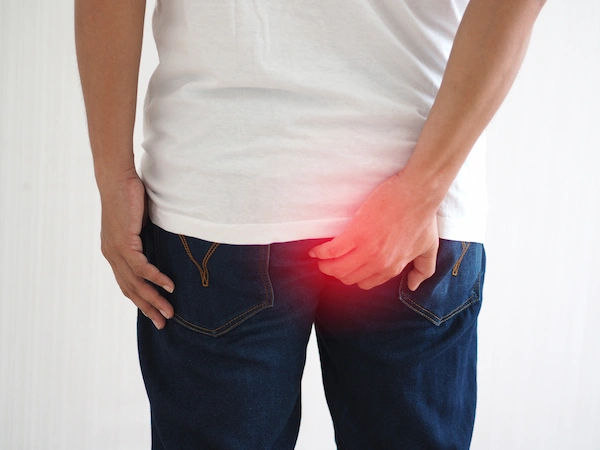Anal Fistula Diet Foods to Eat and Avoid for Healing
A practical anal fistula diet guide for digestive care: what to eat, what to avoid, and how to support healing and easier bowel movements.

Written by Dr. Siri Nallapu
Reviewed by Dr. Shaik Abdul Kalam MD (Physician)
Last updated on 17th Nov, 2025

Introduction
If you’re living with an anal fistula, what you eat can make a big difference in your daily comfort and recovery. While diet alone can’t cure a fistula, a thoughtful anal fistula diet helps you pass softer stools, avoid straining, and protect delicate skin—key parts of good digestive care. This guide explains how to build a healing-friendly plate, what to limit, and practical tips you can use right away.
What Is an Anal Fistula and Why Diet Matters
An anal fistula is a small tunnel that forms between the inside of the anus or rectum and the skin around the anus. Many fistulas start after an infection or abscess. Surgery is often needed to fully treat a fistula, but daily habits—especially eating and drinking—can help you feel better and support healing before and after treatment.
Why diet helps:
• Softer stools reduce pain and irritation.
• Regular bowel movements lower the risk of straining and tearing.
• Balanced nutrition supports your body’s natural wound repair.
• Avoiding constipation and diarrhoea protects the area from extra inflammation.
Always follow the plan your clinician or surgeon gives you. Use the tips below as general guidance for digestive care.
Anal Fistula Diet: Foods That Support Healing
Here’s a list of foods that support the healing of an anal fistula:
Fibre for Softer, Easier Stools
Dietary fibre is the MVP for comfortable bowel movements. It adds bulk, draws water into stool, and helps it pass more easily. Major medical organisations recommend most adults aim for about 21–25 grams of fibre daily for women and 30–38 grams for men.
Great fibre sources:
• Whole grains: oats, barley, brown rice, wholewheat pasta, quinoa
• Legumes: lentils, chickpeas, black beans, navy beans, split peas
• Fruits: berries, pears, apples (with skin), prunes, oranges
• Vegetables: broccoli, carrots, Brussels sprouts, leafy greens, sweet potatoes
• Seeds and nuts: chia, flaxseed, almonds, walnuts
• Fibre supplements (see below): psyllium, methylcellulose
Tips for success:
• Increase fibre gradually over 1–2 weeks to reduce gas and bloating.
• Drink enough water to keep stools soft as you add fibre.
• Mix soluble and insoluble fibre. Soluble fibre (oats, psyllium, beans) helps soften stool; insoluble fibre (whole grains, many vegetables) supports regularity.
Hydration to Prevent Constipation
Water is fibre’s best partner. Dehydration can harden stools and increase straining. Most people do well by drinking throughout the day so their urine runs pale yellow. You’ll need more fluids in hot weather, during exercise, or if you’re taking certain medications.
Hydrating choices:
• Water (plain or infused with fruit slices)
• Unsweetened herbal tea
• Broths and soups
• Water-rich foods like cucumbers, melon, and oranges
Protein, Vitamins, and Minerals for Tissue Repair
Your body needs steady building blocks to heal. Include protein with every meal and snack, plus a colourful variety of produce for vitamins, minerals, and antioxidants that support wound repair.
Helpful options:
• Lean proteins: fish, poultry, eggs, tofu, tempeh
• Legumes: lentils, beans, peas (also add fibre)
• Dairy or fortified alternatives: milk, yoghurt, kefir, soy milk
• Vitamin C–rich foods: citrus, berries, kiwi, bell peppers, tomatoes
• Zinc sources: beans, nuts, seeds, whole grains, lean meats
Fermented Foods and Gut-Friendly Choices
A healthy gut can mean more regular, comfortable stools. Fermented foods contain live cultures that may support digestion for some people.
Try:
• Yoghurt with live and active cultures
• Kefir
• Sauerkraut, kimchi (rinse if too spicy or salty for you)
• Miso and tempeh
Note: Probiotics and fermented foods don’t work the same for everyone. If you’re on antibiotics or have specific gut concerns, ask your clinician whether adding a probiotic makes sense for you.Consult Top Specialists
Foods and Habits to Limit or Avoid
It is important to limit certain foods for the healing of anal fistula. Here are some of them:
Constipation Triggers
To reduce straining and discomfort:
• Limit low-fibre, ultra-processed foods: fast food, chips, pastries, white bread
• Keep cheese and other low-fibre dairy moderate if they constipate you
• Don’t skimp on fluids, especially as you add fibre
• Balance red and processed meats with fibre-rich sides
Diarrhoea Triggers and Anal Irritants
Frequent loose stools can inflame the fistula area and irritate the skin. Common culprits include:
• Very spicy foods (can burn on the way out and irritate skin)
• High-fat, greasy foods
• Caffeine and alcohol (can stimulate bowels and dehydrate)
• Sugar alcohols like sorbitol, mannitol, and xylitol (often in “sugar-free” gum, sweets, and some protein bars)
• Dairy if you’re lactose intolerant
Triggers vary widely. Keep a simple food-and-symptom diary for a week to spot patterns.
Alcohol and Smoking
• Alcohol can dehydrate and may impair healing if used heavily. If you drink, do so in moderation and hydrate well.
• Smoking is linked with slower wound healing. Quitting supports recovery and overall health; ask your clinician for help if you’re ready to stop.
Sample One-Day Anal Fistula Diet (Flexible Template)
Use this as a starting point and adjust for preferences, intolerances, and your clinician’s advice:
• Upon waking: Warm water or herbal tea.
• Breakfast: Oatmeal cooked with milk or fortified soy milk; top with berries and ground flaxseed. Add a side of yoghurt with live cultures if tolerated.
• Mid-morning: A pear and a handful of almonds. Water.
• Lunch: Lentil and vegetable soup; slice of wholegrain bread with hummus; side salad with olive oil and lemon. Water or diluted fruit spritzer.
• Afternoon: Carrot sticks with peanut or almond butter; kefir or unsweetened soy yoghurt.
• Dinner: Baked salmon or tofu; quinoa; steamed broccoli and carrots; orange slices. Water or herbal tea.
• Evening: If needed, a small bowl of prunes or chia pudding made with milk/alt-milk to encourage gentle regularity.
Smart Use of Fibre Supplements and Stool Softeners
If you struggle to get enough fibre from food, a supplement can help:
• Psyllium husk: A well-studied soluble fibre that softens stool and supports regularity.
• Methylcellulose or wheat dextrin: Alternatives that some people find gentler.
Start low, go slow, and drink extra water. If your clinician recommends a stool softener (such as docusate) after surgery or when stools are hard, use it as directed. Avoid long-term use of stimulant laxatives unless your healthcare provider advises it.
After Surgery: Eating for Comfort and Recovery
Your surgeon’s instructions come first. Many people find this approach helpful after fistula procedures:
• First 24–48 hours: Small, gentle meals and plenty of fluids. Some people prefer a bland, lower-fibre start if they have nausea, then quickly shift to higher fibre as tolerated.
• Days to weeks after: Build up to a high-fibre pattern with ample fluids to keep stools soft and reduce straining.
• Consider a fibre supplement and stool softener if recommended.
• Protect the skin: If loose stools cause irritation, ask about gentle cleansing methods and barrier creams.
Practical Tips for Everyday Digestive Care
Follow these tips for everyday digestive care:
• Go when you feel the urge; don’t delay bowel movements.
• Use a footstool to elevate your feet on the toilet; a straighter angle can make passing stool easier.
• Stay active: Walking and light movement help bowel regularity.
• Clean the area gently after bowel movements and pat dry. Fragrance-free wipes or a brief warm water rinse can be more comfortable than rough toilet paper.
• If diarrhoea develops, prioritise hydration and bland foods until it settles; contact your clinician if it persists.
When to Seek Medical Advice?
Contact your healthcare provider promptly if you notice:
• Fever, chills, or feeling unwell
• Increasing pain, redness, or swelling near the anus
• More drainage, pus, or a bad odour
• Significant bleeding or inability to pass stool
• Ongoing diarrhoea or constipation despite dietary changes
• New symptoms after surgery or concerns about your wound
Consult Top Specialists
Consult Top Specialists

Ms. Samapti Maity
Dietician
16 Years • MSc. (Clinical Nutrition & Dietitics), NDEP, Course in Maternal Infant Young Child Nutrition.Diploma in Sports Nutrition, Diploma in Diabetic educator, FODMAP Specialist
Kolkata
BIENETRE CLINIC, Kolkata

Ms. Sreeparna Dey Dhara Deb
Dietician
10 Years • DNHE
Bansdroni
Siddhita Healthcare., Bansdroni

Ms. Malabika Datta
Dietician
17 Years • Msc. in Dietetics & Food Service Management
Kolkata
Dr Utsa Basu Clinic, Kolkata
(25+ Patients)

Dr. Sushith C
General Physician
2 Years • MBBS
Bengaluru
PRESTIGE SHANTHINIKETAN - SOCIETY CLINIC, Bengaluru

Ms. Poushali Ghosh
Dietician
9 Years • Msc in Applied Nutrition
Barasat
Diab-Eat-Ease, Barasat
Consult Top Specialists

Ms. Samapti Maity
Dietician
16 Years • MSc. (Clinical Nutrition & Dietitics), NDEP, Course in Maternal Infant Young Child Nutrition.Diploma in Sports Nutrition, Diploma in Diabetic educator, FODMAP Specialist
Kolkata
BIENETRE CLINIC, Kolkata

Ms. Sreeparna Dey Dhara Deb
Dietician
10 Years • DNHE
Bansdroni
Siddhita Healthcare., Bansdroni

Ms. Malabika Datta
Dietician
17 Years • Msc. in Dietetics & Food Service Management
Kolkata
Dr Utsa Basu Clinic, Kolkata
(25+ Patients)

Dr. Sushith C
General Physician
2 Years • MBBS
Bengaluru
PRESTIGE SHANTHINIKETAN - SOCIETY CLINIC, Bengaluru

Ms. Poushali Ghosh
Dietician
9 Years • Msc in Applied Nutrition
Barasat
Diab-Eat-Ease, Barasat
More articles from Anal fistula
Frequently Asked Questions
1) Can diet cure an anal fistula?
No. Diet can’t close a fistula. However, a balanced anal fistula diet can make bowel movements easier, reduce irritation, and support recovery. Many fistulas need surgical treatment; always follow your clinician’s plan.
2) How much fiber should I eat?
Most adults do well with about 21–25 grams per day for women and 30–38 grams for men. Increase gradually and drink enough water to avoid gas and bloating.
3) Are spicy foods bad for an anal fistula?
Spicy foods don’t cause a fistula, but they can irritate the skin on the way out and worsen burning or discomfort. If you notice symptoms after spicy meals, reduce heat and see if you feel better.
4) Should I avoid nuts, seeds, and popcorn?
There’s no strong evidence that these foods worsen fistulas for most people. If you tolerate them, they can be part of a high-fiber diet. If you notice they bother you, limit or avoid.
5) Which fiber supplement is best?
Psyllium is a common first choice because it softens stools and supports regularity. Methylcellulose is another option. Start with a small dose, increase slowly, and drink extra water. Ask your clinician what fits your situation, especially after surgery.


